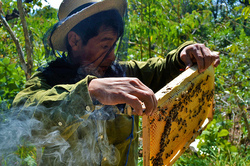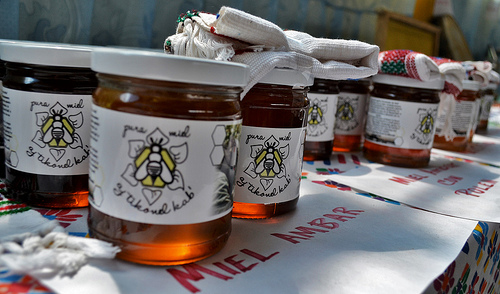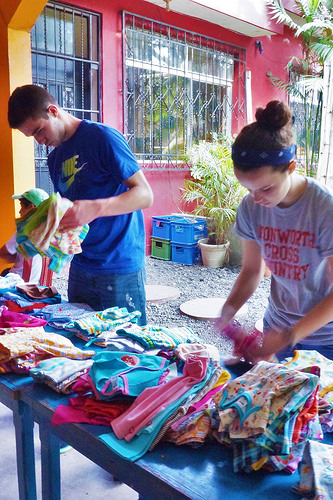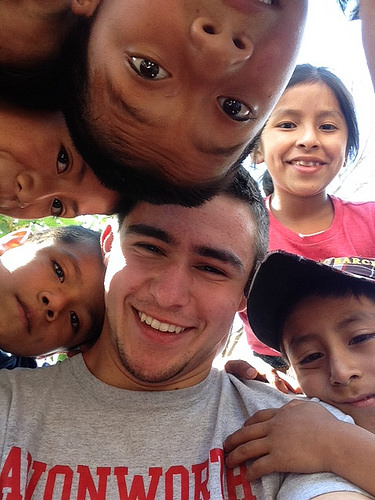 Genaro, the project technician, lifts a panel of honey
Genaro, the project technician, lifts a panel of honey With a portion of the income generated from sales, the group plans to cover the costs of future hive maintenance and product packaging, as well as expand the apiary to increase honey production for the coming harvest in April and May.
The remaining income will be divided among members, many of whom have lost over half of their annual coffee harvest income to Roya, the coffee fungus currently devastating the Guatemalan highlands. This, along with a drop in international coffee prices, has dealt a significant blow to the livelihoods of these farmers. What they make from honey sales will provide a much-needed new source of income for their families.
Meanwhile, we’re hoping to incorporate 10 additional coffee farmers into the beekeeping project cooperative.
This new group of farmers approached us earlier this year to express interest in beekeeping so that they too can become more resistant to the coffee rust epidemic. Like our current beekeepers, half of the new group members are women, and all of them are excited about the opportunity to embark on this project.
We hope to begin training new members in early April. Our current members will guide the new beekeepers by providing mentorship and technical support, and when the time comes both groups will work together to sell the honey they produce under the Aj Tikonel Kab’ label.




 RSS Feed
RSS Feed